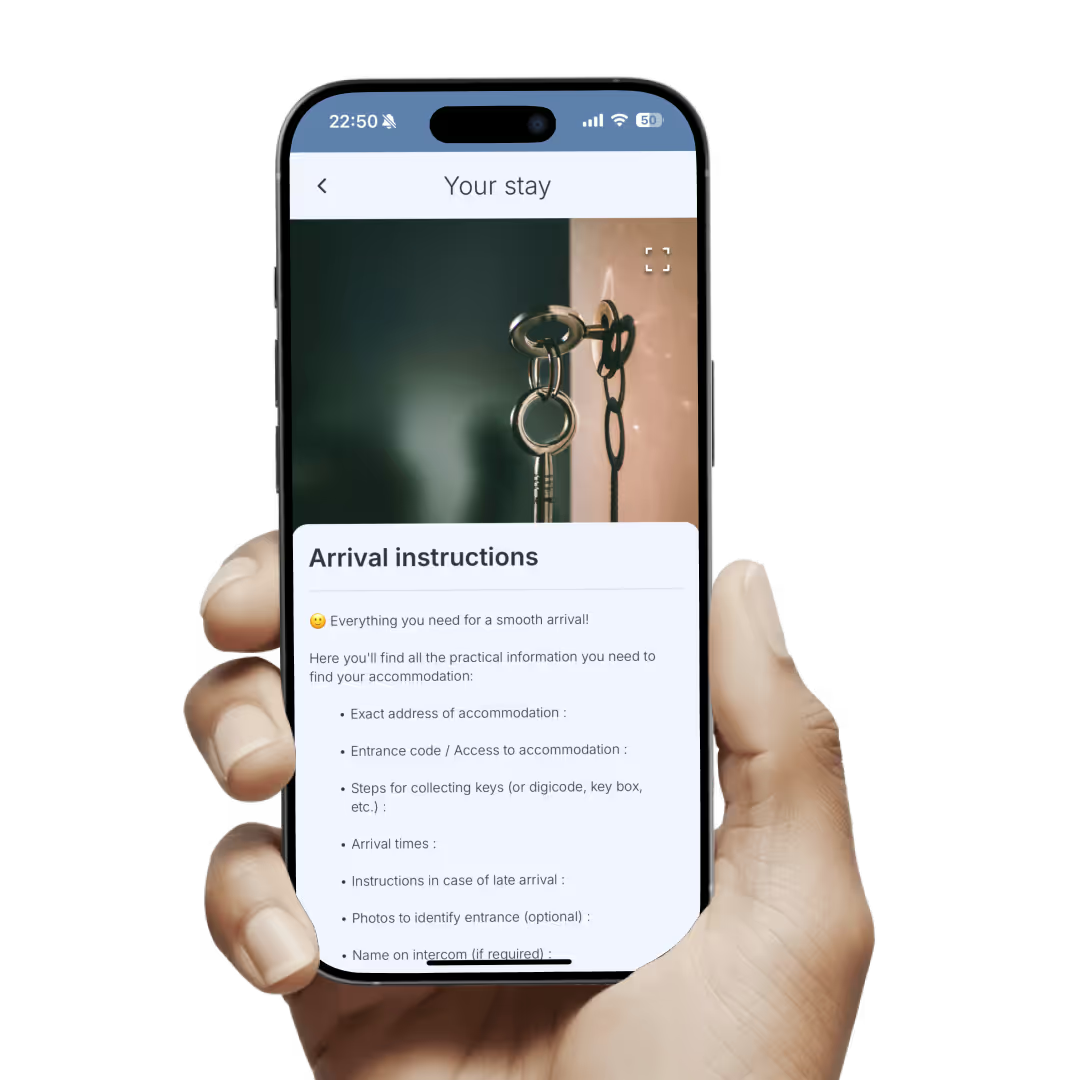How to Attract New Property Owners: 8 Proven Strategies for Growing Your Short-Term Rental Management Business
Discover 8 actionable strategies to attract property owners, grow your rental management business, and stand out in the competitive hospitality market.
.webp)
In the fast-evolving world of short-term rentals, one challenge remains constant for every property manager: how to attract and retain new property owners. Whether you manage ten apartments or a hundred, scaling your business depends on your ability to build trust, prove results, and deliver a premium experience — not only to guests but also to owners.
This article explores eight tested strategies that combine traditional relationship-building with modern digital marketing techniques. You’ll learn how to position your brand, generate qualified leads, and convert them into long-term clients — efficiently and sustainably.
1. Understand the Lifetime Value of a Client
Before launching any acquisition campaign, it’s essential to know how much a client is worth to your business.
Lifetime Value (LTV) refers to the total revenue a client generates during their entire relationship with your company. For example:
- If an owner pays €100 per month for four years, the total revenue is €4,800.
- With a 70% profit margin, your actual profit is €3,360.
If acquiring a new client costs €500, your net profit per client is €2,860 — a strong indicator that your acquisition strategy is profitable.
Understanding your LTV allows you to set clear marketing budgets, make data-driven decisions, and scale confidently without overspending.
2. Define and Communicate Your Unique Value Proposition
Owners receive dozens of offers from property managers. To stand out, you must clearly articulate what makes you different.
Ask yourself:
- What measurable benefits do you provide (e.g., +20% in rental income, zero vacancy)?
- Do you specialize in premium properties or specific locations?
- What level of service do you offer (24/7 support, multilingual communication, AI automation)?
Your value proposition should be short, specific, and easy to remember — something that reassures owners they are working with experts who understand their goals.
3. Leverage the Power of Referrals
Referrals remain one of the most effective and trustworthy ways to grow your business. They bring in clients who already trust your reputation.
Here are four ways to activate your network:
- Real estate agents: Partner with local agents who regularly meet property owners. Offer them a referral commission for each signed contract.
- Past guests: Encourage happy guests to recommend owners they know, rewarding them with discounts or gifts.
- Friends and family: Don’t underestimate personal connections — a small incentive can go a long way.
- Local businesses: Partner with cleaning services, maintenance companies, or tourism offices who can introduce you to potential clients.
Each referral channel strengthens your credibility while reducing acquisition costs.
4. Build a Strong Digital Presence
A professional online presence is your digital storefront. It reassures potential owners of your reliability and modern approach.
Here’s how to optimize it:
- Website: Create a clear page describing your management services, fees, and results.
- Social media: Showcase success stories, testimonials, and behind-the-scenes insights on LinkedIn, Instagram, and Facebook.
- SEO & advertising: Invest in targeted Google Ads or social campaigns to reach owners searching for “property management in [your city]”.
- Content marketing: Publish articles about market trends, rental profitability, or regulation updates — these attract organic traffic and position you as an expert.
Digital visibility builds authority before you even meet potential clients.
5. Demonstrate Expertise and Authority
Owners trust data and proven results. Highlight your knowledge through education-based marketing:
- Write blog posts explaining how to optimize rental income, avoid legal pitfalls, or improve guest satisfaction.
- Share client testimonials and success stories showing measurable growth.
- Participate in webinars or local podcasts to share best practices and real-life insights.
You can also join online groups or forums dedicated to real estate and hospitality. By answering questions and contributing genuinely, you establish yourself as a go-to expert — without aggressive selling.
6. Network Strategically — Both Online and Offline
Networking is not just exchanging business cards; it’s about building relationships.
- LinkedIn: Use the search feature to find local investors and property owners. Send personalized messages explaining how your services can help them save time and increase revenue.
- Industry events: Attend short-term rental and hospitality conferences, such as SCALE or local real estate expos. Prepare data-rich presentations or reports (average daily rates, occupancy trends) to start meaningful conversations.
- Host your own workshops: Educate potential clients about market opportunities and rental strategies. Sharing valuable knowledge makes you memorable and credible.
These events often lead to direct partnerships and long-term collaborations.
7. Combine Digital Outreach with Direct Contact
Even in a digital age, direct communication can make a difference.
- Personalized emails: Send concise, data-driven proposals including potential income estimates.
- Phone calls or visits: When done respectfully, they can establish instant rapport.
- Mail campaigns: A well-designed brochure or postcard can stand out from endless online ads.
- Local listings: Monitor online property listings — reach out to owners whose rentals seem underperforming, offering a free audit of their pricing and visibility.
Combining human contact with smart data gives you a decisive advantage.
8. Use Qualified Lead Platforms (PPL)
If you want faster results, Pay-Per-Lead (PPL) services can help. These platforms connect you with verified property owners actively looking for management partners.
The key is to treat each lead as a long-term relationship, not a transaction. Customize your first contact, highlight relevant data, and demonstrate local expertise to maximize conversions.
30-Day Action Plan: From Zero to Active Pipeline
Week 1 – Define your offer:
Clarify your unique selling proposition and prepare a presentation with real figures (e.g., “+22% annual revenue increase for similar properties”).
Week 2 – Activate your network:
Reach out to five past partners or clients with a referral incentive. Post one expert article on LinkedIn.
Week 3 – Prospect strategically:
Identify 10 potential owners on Airbnb, LinkedIn, or local real estate groups. Contact them with a personalized income forecast.
Week 4 – Multiply your touchpoints:
Join a local event, launch an email campaign, or offer free property audits to attract new prospects.
By the end of the month, you’ll have established a professional image, reactivated your network, and started filling your pipeline with qualified leads.
Conclusion
Acquiring new property owners is not about aggressive sales — it’s about trust, expertise, and consistent communication. By combining strong digital visibility, authentic networking, and a data-driven approach, you can scale your short-term rental management business sustainably.
The key is balance: invest in relationships, leverage modern tools, and prove your value through results. Property owners don’t just look for a manager; they look for a partner who understands their goals, anticipates their needs, and helps them grow.
Much more than a welcome guidebook
A web application accessible without download, via QR code or link, automatically translated into your guest’s language.




Frequently asked questions
Everything you need to know about Sunver.
What is Sunver?
Sunver is a solution that allows you to easily create your own digital welcome guidebook to simplify communication with your guests. It enhances the guest experience, saves you time every day, and helps you generate additional revenue. Setting up a guidebook is intuitive—similar to creating a Facebook profile.
How do I set up Sunver?
You can create your first guidebook directly from our website in just a few minutes and experience the simplicity of the solution for yourself. If you are a hospitality professional, our team also offers a full demo via video call, helping you with setup and customization.
How can I share my guidebook with guests?
There are two main ways to share your guidebook:
1. Send the link directly after booking or during the stay through your automated messages.Provide
2. QR code displays inside your accommodation so guests can scan and access the guidebook instantly.
You can also print your display for free from your Sunver dashboard or order physical QR code supports directly from our website.
Do my guests need to download anything?
No, your guests don’t need to download anything. Sunver runs as a web app, meaning it’s hosted online, loads quickly, and is instantly accessible. Thanks to automatic translation, the guidebook will open directly in the guest’s phone language.
Can I promote my additional services with Sunver?
Yes, absolutely. With the guidebook modules, you can create a true digital shop and showcase your services, products, or exclusive offers. By connecting your Stripe account, you can accept payments directly without any commission taken by Sunver. Guests can pay in just one click from their smartphone.
The digital welcome guide your guests deserve
Give your guests a seamless experience — all your information, services, and recommendations, right at their fingertips.
